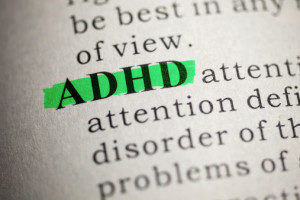Is it the ADHD, or Something Else?

Filling In The Blanks
I often hear parents ask. “Is it the ADHD or is it something else?” I can relate, because sometimes I find myself asking the same question. We call that “something else”: lazy pre-teen, normal 2nd grader, too much sugar, not enough sleep, just a boy. While I identify with the question, and the underlying desire to know the answer, I find myself wondering,
Article continues below...
Minimize Meltdowns!
Download a free tipsheet "Top 10 Ways to Stop Meltdowns in Their Tracks" to stop yelling and tantrums from everyone!
“Does it really matter”?
Why does it matter to us? Why do we have such a strong need to “explain” our children and their behavior? Parents have different reasons. For me, I like to think that I will feel a little better if I can hold ADHD accountable when my kids don't act the way I want them to. When I can logically explain why my child is behaving like a crazy person, then the behavior is “not my fault.” It's our natural tendency to look for explanations. It's also often our inclination, to look for someone or something to blame.
It all comes down to Judgment with a capital “J”– judgment of ourselves, our kids, the school, our situation. This is something we do, despite our best intentions. So first, let's be gentle on ourselves and call this tendency human nature. At the same time, let's challenge ourselves to look at the situation differently.
Eliminate Blame
No matter what the reason, we want to help our children learn to manage their behavior. The more we can do that with support and understanding, and without blame or judgment, the easier it can be for them. We'll likely feel better about ourselves, too.
So how do we put aside the “why” and interact directly with our children and their behavior? It comes down to setting appropriate expectations, and responding to behaviors without blaming the children, themselves.
First, it helps to be as clear as possible about our expectations and boundaries around behaviors, both for our kids and for ourselves. What's reasonable… for their age? personality? ability? What can we reasonably tolerate? We need to look at our priorities and values to figure out how we want to handle different situations before we are in the thick of an “event.” For example, it is a priority for me that my children grow up happy and self-confident. I consider everything else “gravy.” When I set my expectations based on this priority, then I respond in a way that supports my kids. Better yet, I feel confident in my own behavior as a parent.
Stay In The Moment
If I set an expectation for “A's” and my child consistently misses the expectation, what happens to his self-confidence? If my daughter comes home with a note that she was unkind to another child, and my initial response is to lash out rather than getting curious about what is happening for her, I'm not being true to my intentions.
So what to do? Be clear and consistent, and at the same time be flexible and spontaneous. Sounds paradoxical, but it's really about paying attention (no joke) to when you need to zig and when to zag. This is awareness. To do this you need to figure out your own expectations and behaviors, stand your ground when it's called for, admit your mistakes, be willing change your mind, and modify your expectations as situations change. Set a great example by being gentler with yourself. This will help you be the amazing parent that you can be!
The most important part is to remember to be gentle, on yourself, and on your kid, because sometimes they are just being a kid. Rather than getting stuck in the “why,” it can actually be easier if you are willing to consider that your kids are doing what they can when they can. Give them the benefit of the doubt. And while you're at it, give yourself a little kindness, too…it definitely helps!

